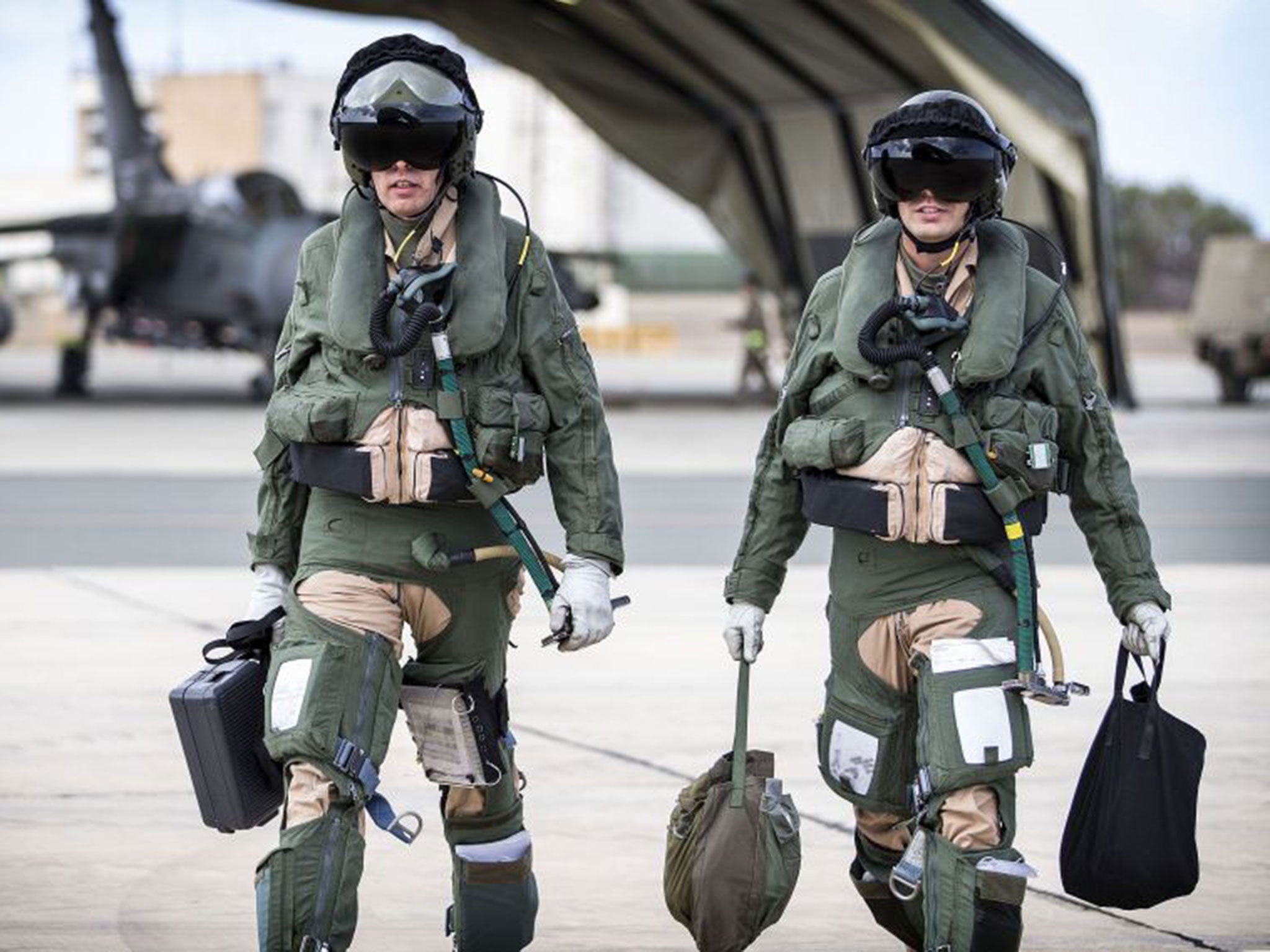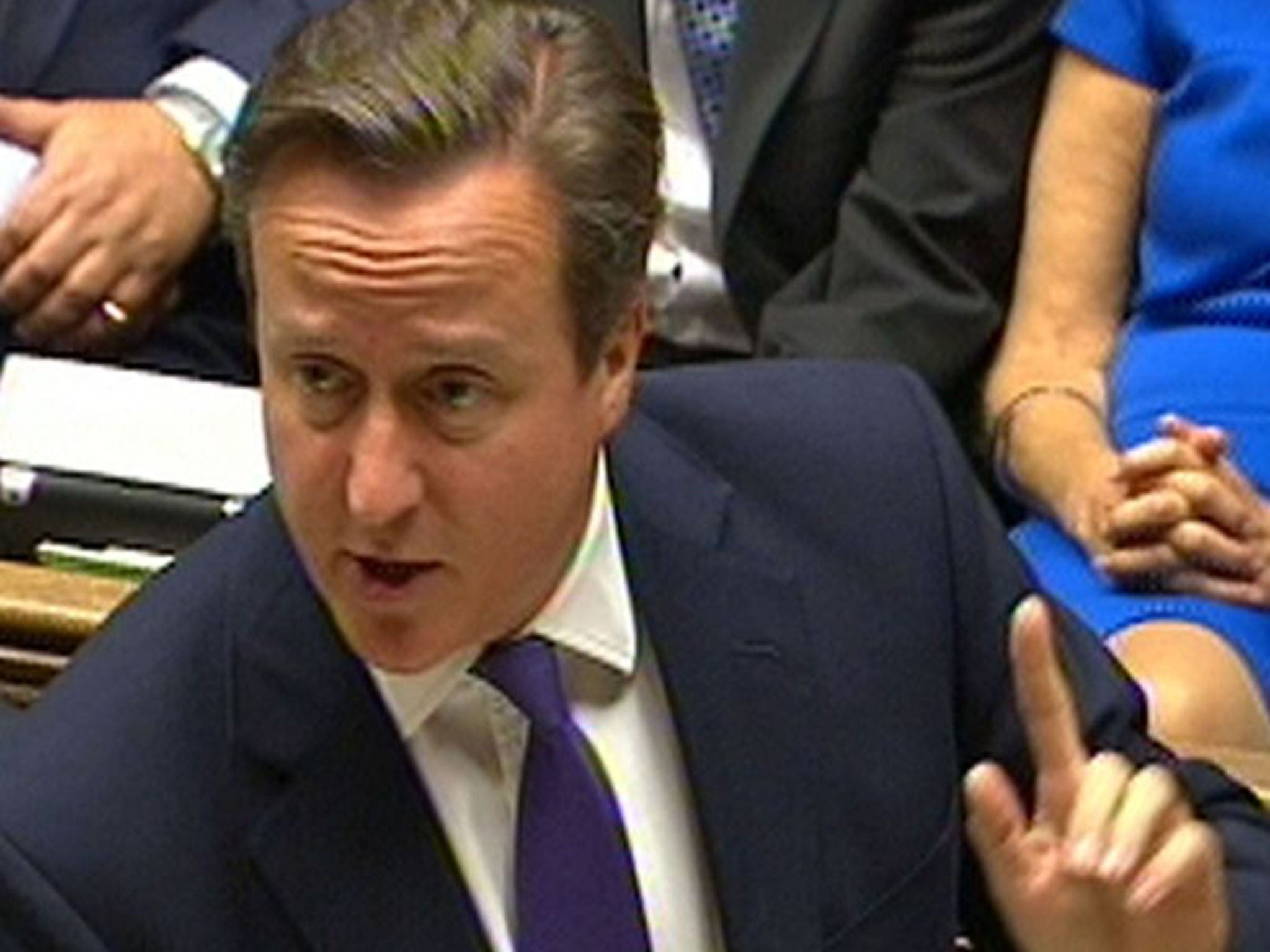War against Isis: It's started, but do we know what we're doing?
Military experts are among the doubters

The first RAF Tornado combat jets, carrying laser-guided bombs, may have started their mission in Iraq, but military experts, politicians and Brits on the ground in Baghdad, haunted by what followed the invasion of Iraq in 2003, are struggling to convince themselves that the current strategy will produce the desired outcome – and, in some cases, what that outcome is.
Concerns over the House of Commons's overwhelming vote on Friday to join the United States in carrying out air strikes on the Islamic State (Isis) in Iraq reflect the complications of fighting an oil-rich terrorist group that operates either side of the border with Syria. The vagaries of international law and yet another war in Iraq only compound a situation that even supporters of the strikes acknowledge is both tense and fluid.
Chief among the concerns is the strategy itself. Writing exclusively in The Independent on Sunday today, former SAS commanding officer Richard Williams said: "Friday's debate lacked any meaningful reference to the political solution that must be considered in Iraq if these bombs are to mean anything. Bombing that is not geared to an Iraqi political purpose will only create propaganda opportunities for Isis, as they seek to legitimise their hold over Western Iraq."
Mr Williams, who served in Bosnia, Iraq and Afghanistan, said that bombing raids would see Isis hurt militarily and cede ground. But he added that they would gain support among civilians if ordinary Iraqis saw only bombing and no Western attempts at forging a political deal. The current plan, he added, "risks looking fearful and half-cock".
Nadhim Zahawi, the Baghdad-born Conservative MP for Stratford-on-Avon, said that while it was right to join a coalition of Arab Sunni states, Jordan, UAE, Saudi Arabia, and the US, "we have to be realistic about what that can achieve".
Mr Zahawi said that Western forces must learn from their mistakes in 2007, when US General David Petraeus forged alliances between US forces and Sunni tribes to help drive out al-Qaeda in Iraq. However, Nouri al-Maliki, Iraqi prime minister from 2006 until earlier this month, has been accused of sectarianism that resulted in a Sunni uprising.
Mr Zahawi said: "We convinced them to do all this stuff in 2007, they did it and then we abandoned them to Maliki who then holed them out. That was the Petraeus doctrine.
"That process will only work [this time] if the end result is a political settlement, that that community feels happy with, satisfied with, ie they have skin in the political game, they've got some say in governing themselves and that didn't happen because Maliki chose a different path. The other lesson we need to learn is that we can't do nation-building, it has to be up to the local community to decide who they want to govern themselves."
Speaking to the Today programme yesterday, Reverend Andrew White, the so-called "vicar of Baghdad", who leads Iraq's only Anglican church, said that tensions in Iraq emerged "the day the Americans withdrew" in 2011. He said that the UK and US had to admit that the reason for IS's growth in Iraq was because they withdrew their troops when the domestic forces were not strong enough.
He added that the "reality" is that ground troops will be needed to eventually topple Isis, which is militarily powerful because it has stolen tanks and equipment from Iraqi troops. "Isis is an evil, evil force – the only way to control these bigots is to further put at risk Iraqi people," he warned.

Dr Nafeez Ahmed, executive director of the Institute for Policy Research & Development, agreed that a US-UK invasion is "inevitable as local ground forces are pretty useless". He added that air strikes would force Isis to "blend into the civilian population", which would result in the death of more innocent people when targets are attacked.
"We might win some short-term battles but we will create more grievances that will empower the Isis cause in the long run," said Dr Ahmed.
Chris Doyle, director at the Council for Arab-British Understanding, said that the strategy didn't seem "fully formed yet". He warned that diminishing Isis's power base, even ultimately in Syria, begs the question of "who steps into that vacuum", opening up the possibility of simply destroying one extremist group only to see another replace it.
"The bigger issue is to actually help Syria, but if you just want to defeat Isis then you lose sight of that overall goal," added Mr Doyle.
There is still disagreement over whether there is a legal basis for joining US air strikes on Syria. The Iraqi government has invited the attacks on its territory, but Syrian president Bashar al-Assad has not.
Philippe Sands QC, professor of international law at University College London, repeated his concerns yesterday that there is a lack of concrete legal justification. Others have argued that there are interventionist grounds to help the Syrian people, more than 3 million of whom are now registered as refugees, while David Cameron has claimed that the UK could go in because the Assad regime is illegitimate.
David Davis, the Conservative former shadow home secretary who abstained in Friday's vote, said that many of these difficult questions could not be answered in six hours of parliamentary debate.
"The moral case is clear, the practical case is not," he said. "There's no clear indication or our aim – what do we do when we stop bombing?"
Mr Davis added that his concerns were further fuelled by criticisms of air strikes made by former high-ranked military personnel in the US. Retired General James Conway, a former head of the Marine Corps, is reported to have said at a conference in Washington earlier this month that President Obama's plans to destroy IS did not have "a snowball's chance in hell of succeeding".
And, Mr Davis added, if that's what former top military generals are saying openly, it's probably what current US military leaders are thinking as well.
Join our commenting forum
Join thought-provoking conversations, follow other Independent readers and see their replies
0Comments